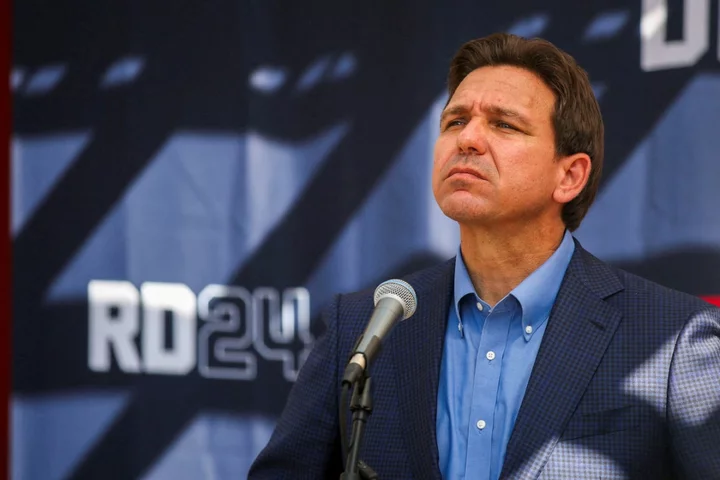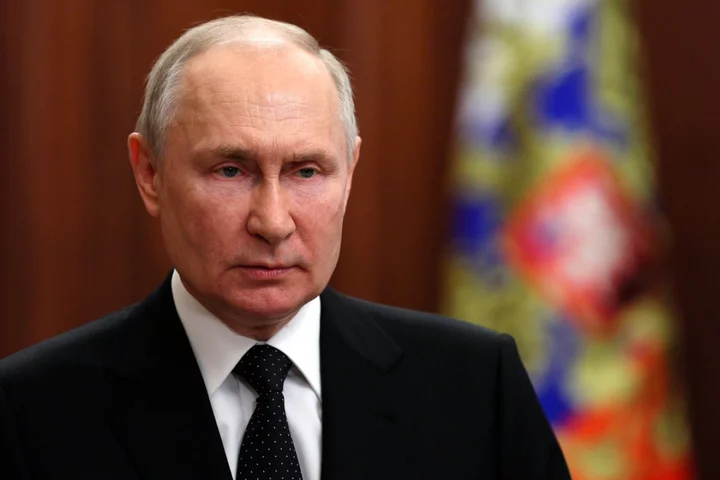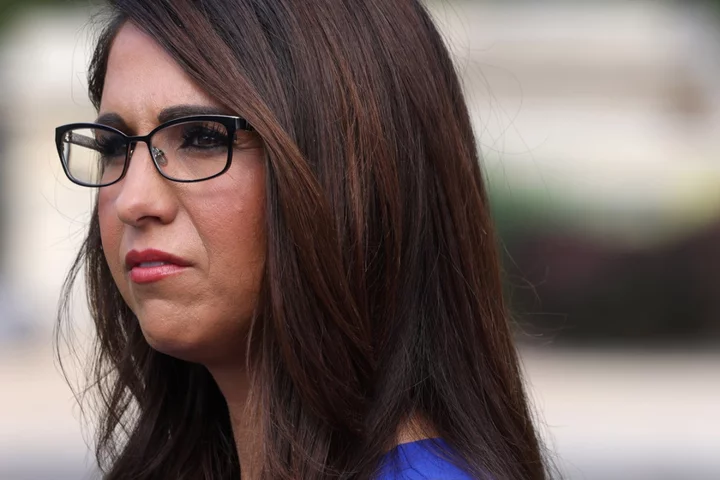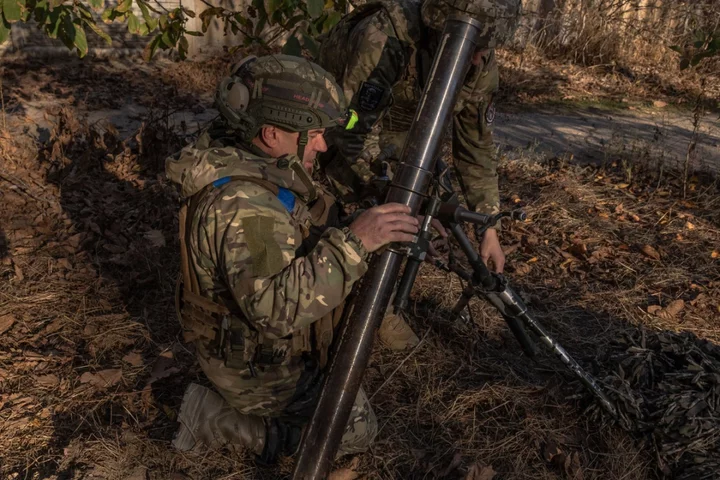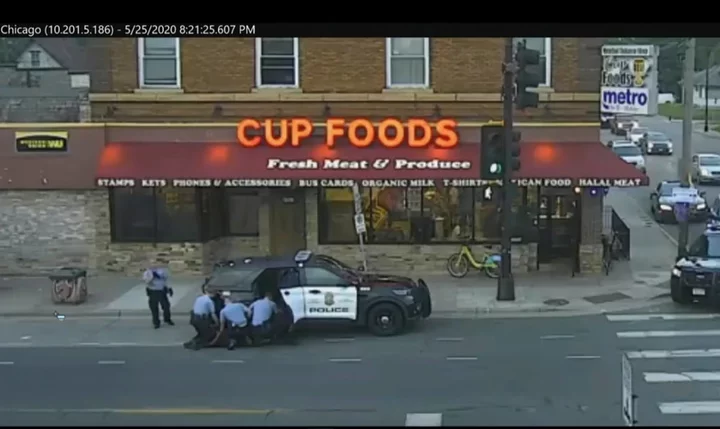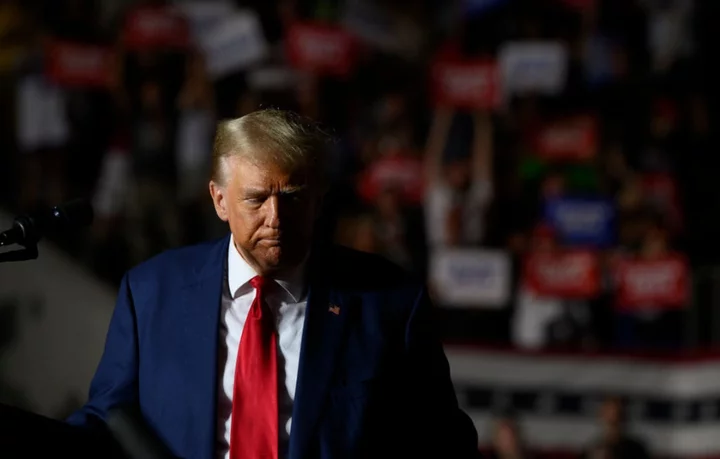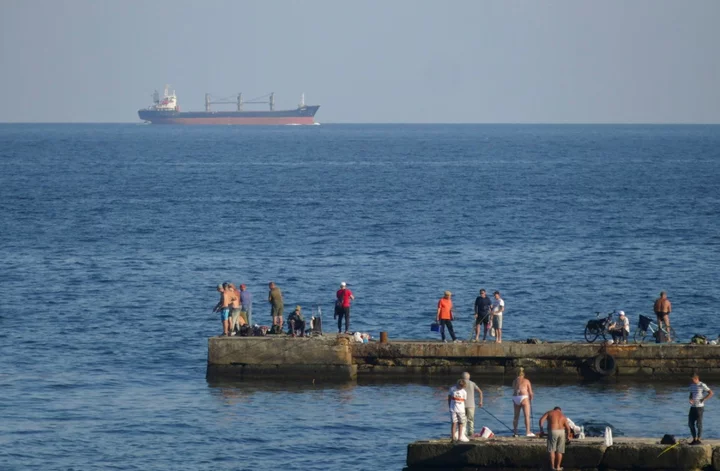Ron DeSantis has not ruled out enacting a national abortion “ban” if elected president, after the Florida governor implemented state restrictions on abortion access at 15 weeks and six weeks of pregnancy within the last two years. But he suggested that there is no “consensus” in the US for members of Congress to implement a national ban, as abortion restrictions and the US Supreme Court’s decision to overturn Roe v Wade remain overwhelmingly unpopular. Asked by NBC’s Dasha Burns whether he would “veto any sort of federal bill” that would institute a nationwide ban, Mr DeSantis replied: “We will be a pro-life president and we will support pro-life policies.” In the wake of the Supreme Court’s decision to revoke a constitutional right to abortion care last year, Republican officials have repeatedly stated that the ruling merely left it up to individual states to decide. But anti-abortion lawmakers at the state level and in Congress continue to push for national restrictions that would also strike down state laws that protect and expand abortion access. Congressional Republicans have already passed several anti-abortion measures with national implications and have signalled the GOP’s readiness to ban abortion at certain gestational limits. President Joe Biden has promised to veto any such legislation, if it made it through Congress. In media appearances throughout his campaign, the governor has not directly answered whether he would support or veto legislation that would enact national abortion restrictions, suggesting that the issue should come from the “bottom up” with individual states determining policy. His statements have drawn criticism from influential anti-abortion group Susan B Anthony Pro-Life America, which called the governor’s position “unacceptable” to anti-abortion voters. Meanwhile, his campaign’s top donor has threatened to stop funding the candidate over his “extreme” position on abortion. And Donald Trump, who has taken credit for the Supreme Court’s decision in Dobbs v Jackson Women’s Health Organization, has suggested that his rival for the 2024 Republican nomination for president has gone too far with a state law that bans abortion at six weeks of pregnancy, signed into law just one year after a 15-week limit was put in place. “Dobbs returned it to the political branches. I think the reality is that that basically means the states are going to have primary control over it,” Mr DeSantis told NBC. “You know, I do think the federal government would have an interest in, say, preventing post-birth abortions or things that are really horrific, but I don’t think that there’s enough consensus in the country to see a lot of mileage in Congress,” he added. There is no such thing as a “post-birth” abortion; killing an infant after birth is illegal in all states, and pregnancies resulting in the death of the fetus in the third trimester are exceedingly rare, and largely involve fetal anomalies and life-threatening medical emergencies. The vast majority of abortions take place within the first trimester, while roughly 1 per cent occur after 21 weeks, according to the US Centers for Disease Control and Prevention. The governor also suggested that Democratic officials support “infanticide”, echoing his remarks in a recent CNN interview claiming that “liberal state” allow “post-birth” abortion. “I would not allow what a lot of the left wants to do, which is to override pro-life protections throughout the country all the way up really to the moment of birth in some instances, which I think is infanticide,” he told NBC News. Ms Burns interrupted Mr DeSantis: “That’s a misrepresentation of what’s happening.” The governor also said that he does not support penalties for people who seek abortions. “Not at all,” he told Ms Burns. “No, I don’t think this is an issue about the woman. I think a lot of these women, you know, are in very difficult circumstances. They don’t get any support from a lot of the fathers. And a lot of them, the number one reason why women choose to have an abortion is because they’re not getting support and they feel abandoned. Now, in Florida we’ve provided support and we’ve put our money where our mouth is, but at the end of the day, you know, I would not support any penalties on a woman.” Mr DeSantis also told NBC that he does not support limits on contraception access. “And I think it should be available over-the-counter, and I think people should be able to have access to it,” he added. Read More Texas judge sides with women after harrowing testimony over anti-abortion law Alabama health care providers sue over threat of prosecution for abortion help ‘Walmart Melania’, ‘America’s Karen’ or ‘Tacky Onassis’: Why Casey DeSantis matters to the 2024 race Senator who once worked at a Planned Parenthood warns that Republicans are planning a national abortion ban
Ron DeSantis has not ruled out enacting a national abortion “ban” if elected president, after the Florida governor implemented state restrictions on abortion access at 15 weeks and six weeks of pregnancy within the last two years.
But he suggested that there is no “consensus” in the US for members of Congress to implement a national ban, as abortion restrictions and the US Supreme Court’s decision to overturn Roe v Wade remain overwhelmingly unpopular.
Asked by NBC’s Dasha Burns whether he would “veto any sort of federal bill” that would institute a nationwide ban, Mr DeSantis replied: “We will be a pro-life president and we will support pro-life policies.”
In the wake of the Supreme Court’s decision to revoke a constitutional right to abortion care last year, Republican officials have repeatedly stated that the ruling merely left it up to individual states to decide. But anti-abortion lawmakers at the state level and in Congress continue to push for national restrictions that would also strike down state laws that protect and expand abortion access.
Congressional Republicans have already passed several anti-abortion measures with national implications and have signalled the GOP’s readiness to ban abortion at certain gestational limits. President Joe Biden has promised to veto any such legislation, if it made it through Congress.
In media appearances throughout his campaign, the governor has not directly answered whether he would support or veto legislation that would enact national abortion restrictions, suggesting that the issue should come from the “bottom up” with individual states determining policy.
His statements have drawn criticism from influential anti-abortion group Susan B Anthony Pro-Life America, which called the governor’s position “unacceptable” to anti-abortion voters. Meanwhile, his campaign’s top donor has threatened to stop funding the candidate over his “extreme” position on abortion.
And Donald Trump, who has taken credit for the Supreme Court’s decision in Dobbs v Jackson Women’s Health Organization, has suggested that his rival for the 2024 Republican nomination for president has gone too far with a state law that bans abortion at six weeks of pregnancy, signed into law just one year after a 15-week limit was put in place.
“Dobbs returned it to the political branches. I think the reality is that that basically means the states are going to have primary control over it,” Mr DeSantis told NBC.
“You know, I do think the federal government would have an interest in, say, preventing post-birth abortions or things that are really horrific, but I don’t think that there’s enough consensus in the country to see a lot of mileage in Congress,” he added.
There is no such thing as a “post-birth” abortion; killing an infant after birth is illegal in all states, and pregnancies resulting in the death of the fetus in the third trimester are exceedingly rare, and largely involve fetal anomalies and life-threatening medical emergencies. The vast majority of abortions take place within the first trimester, while roughly 1 per cent occur after 21 weeks, according to the US Centers for Disease Control and Prevention.
The governor also suggested that Democratic officials support “infanticide”, echoing his remarks in a recent CNN interview claiming that “liberal state” allow “post-birth” abortion.
“I would not allow what a lot of the left wants to do, which is to override pro-life protections throughout the country all the way up really to the moment of birth in some instances, which I think is infanticide,” he told NBC News.
Ms Burns interrupted Mr DeSantis: “That’s a misrepresentation of what’s happening.”
The governor also said that he does not support penalties for people who seek abortions.
“Not at all,” he told Ms Burns. “No, I don’t think this is an issue about the woman. I think a lot of these women, you know, are in very difficult circumstances. They don’t get any support from a lot of the fathers. And a lot of them, the number one reason why women choose to have an abortion is because they’re not getting support and they feel abandoned. Now, in Florida we’ve provided support and we’ve put our money where our mouth is, but at the end of the day, you know, I would not support any penalties on a woman.”
Mr DeSantis also told NBC that he does not support limits on contraception access.
“And I think it should be available over-the-counter, and I think people should be able to have access to it,” he added.
Read More
Texas judge sides with women after harrowing testimony over anti-abortion law
Alabama health care providers sue over threat of prosecution for abortion help
‘Walmart Melania’, ‘America’s Karen’ or ‘Tacky Onassis’: Why Casey DeSantis matters to the 2024 race
Senator who once worked at a Planned Parenthood warns that Republicans are planning a national abortion ban

